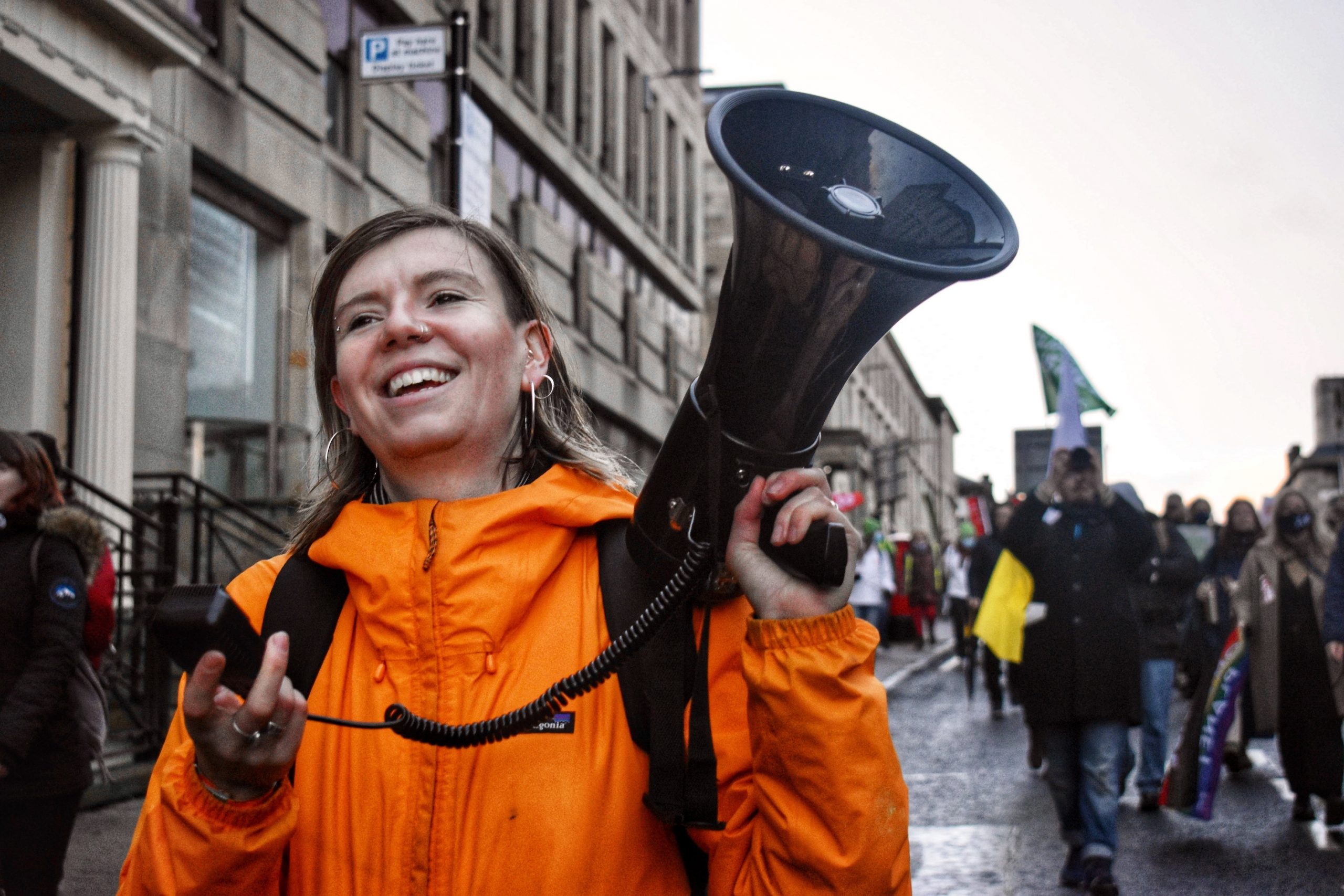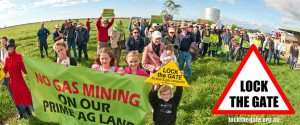
Frack Free Lancashire – but what does this mean for Scotland?
Last week’s decision by Lancashire County Council to reject fracking will give a big shove to Scotland’s current moratorium in the direction of becoming a full ban
Cuadrilla’s applications to frack in Lancashire have been rejected after one of the largest, most passionate and proactive campaigns by threatened communities across the UK. I went down for the large, all-day demonstration on Tuesday 23 June with a group from across the central belt of Scotland to show support for the Lancashire groups fighting this key site battle. And to remind Lancashire County Council that, despite the fracking industry’s protests to the contrary, the moratorium on unconventional gas extraction in Scotland is what many scientists are now demanding for the rest of the UK.
The local opposition to Cuadrilla’s two fracking applications was quite astonishing. That was certainly the thing that struck me most, standing outside Lancashire County Council amidst the large crowd decked in yellow that gathered there from morning til night. Nearly every single car that drove past hooted in support and encouragement – testament, no doubt, to the fact that over 11,000 residents have objected to the proposed fracking plans, with just 217 people in favour. I spoke to people from all walks of life who were concerned about a whole host of risks and impacts associated with the shale gas industry – risks that the UK Government has finally admitted to after it was forced this week to publish a previously redacted report on impacts of fracking for the UK.

So it was brilliant news that Lancashire County Council made the final decision to reject Cuadrilla’s two fracking applications. The first application at Roseacre Wood, was (as many predicted beforehand) rejected on the grounds that this rural site would face unacceptable levels of industrial noise and traffic pollution. But it was the second fracking application, at Preston New Road, that was much more significant – and symbolic for both sides of the fracking fight. It was predicted that Lancashire County Council would follow the opinion of its Planning Officer who just a week earlier had argued that Cuadrilla should be granted permission to frack, but what happened was a lot more dramatic.
Moments before the decisive vote went ahead, councillors received one-side legal advice arguing that they shouldn’t go against the Planning Officer’s decision. This led some councillors to complain that their hands were effectively tied, and after much wrangling the vote was postponed. Reconvening on the Monday – after receiving even more advice saying that they could indeed turn Cuadrilla’s application down – the Councillors finally voted 9 – 3 to reject what would have been the UK’s first fracking activities in four years.
Though the fight is definitely not over – the UK Government wants to exploit all our shale gas resources and Cuadrilla may still appeal to have the Lancashire decision overturned – the longer-term impacts of last week’s decision may prove significant. Lancashire was important because if Cuadrilla had been allowed to frack in the face of huge, diverse and highly organised local opposition, the shale gas industry would have effectively been given a green light to frack wherever it liked regardless of what the majority of affected communities wanted.
Already, proponents of the shale gas industry have lined up to condemn the Lancashire decision – with shouts of nimbyism, environmental hypocrisy and, most intriguingly, alliances with Vladimir Putin being flung in all directions. But comments like these ignore the strength of the anti-fracking movement which, as I saw in Lancashire last week, lies in its great diversity. Broad alliances are being formed all the time. Just like Australia’s Lock the Gate Coalition, anti-fracking organisers are farmers, trade unions, health professionals, parents, grandparents, or simply local residents united by a concern for public health and the environment. Crucially, geology and engineering academics are now calling for a UK-wide moratorium. Which makes it very hard for local authorities to simply dismiss the myriad of voices and concerns.

What does this mean for Scotland? The moratorium announced in January by the Scottish Government has halted coal bed methane and shale gas extraction until a large public consultation takes place, health risks are properly assessed, and regulation and planning laws are strengthened. The industry, however, is acting like the moratorium is a temporary blip on their radar – Ineos is active around the Central belt trying to tell communities that fracking will be safe and profitable when it eventually takes place.
Like the Lancashire proposals, however, the strength of opposition against the fracking industry is huge, diverse and incredibly active, with new anti-fracking groups popping up regularly. The Scottish Government must surely have been watching with great interest the events in Lancashire – but so too must Scottish local authorities. Councillors from all parties must be hugely reluctant to give the go-ahead to such a highly controversial industry, with images of the truck blockades in Balcombe and now large noisy crowds in Lancashire fresh in their minds.
And what with the First Minister travelling the country to talk about the new ‘democratic renewal’ taking place in Scotland – as well as a key vote last week at the SNP Trade Union Group that unanimously opposed fracking – it is surely only a matter of time before the Government listens to the grassroots and turns the fracking moratorium into a lasting ban against an industry that is proving so unpopular across the whole UK.
Flick Monk, Friends of the Earth Scotland Unconventional Gas Campaigner
Underground Coal Gasification is not included in the current unconventional gas moratorium. Please ask our Energy Minister to include it!
